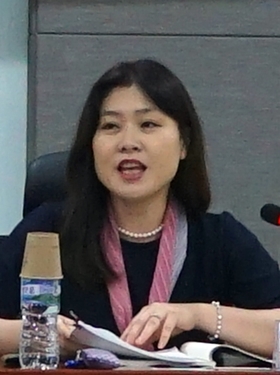More than 60 percent of employees working at medical institutions have been exposed to unreasonable demands or verbal violence from patients and their guardians, a survey showed Tuesday.
Kong Sun-young, a research fellow at the Social Health Research Institute, presented the study at a forum on how to help medical workers deal with emotional labor at the National Assembly.

Her survey was on 1,525 medical staffs including practitioners, registered nurses, nurse assistants, medical technicians and pharmacists from June 19 to July 7.
The survey showed that 68.4 percent of the respondents had experienced unreasonable demands from patients and their guardians and 64.2 percent said they experienced verbal abuse. About 28 percent stated that they were exposed to physical violence and 15 percent said they were sexually harassed or molested.
By occupation, practitioners and nurses who have frequent contacts with patients and their guardians suffered more frequent violence. About 78 percent of the practitioners said they had experienced verbal abuse. Half of them were exposed to physical violence.
In the case of nurses, 70 percent of them said they were verbally abused, 30 percent, physical violence, and 16.8 percent, sexual harassment or molestation. About 68 percent said they had to suffer unfair emotional labor due to verbal or physical violence. Most of them, or 95 percent, said they “just endured them.”
Labor unions urged a systemic measure to help medical workers cope with their emotional issues coming from the work environment.
“Their emotional issues will not be resolved if they try to hide or avoid them. We have to reveal the problems and come up with a proper measure to protect victims,” said Na Young-myeong, director of planning and policy at the Confederation of Labor Union of the Health and Medical Service Industries. “We have to make this issue public. To do so, labor and management should carry out a joint investigation and set up a body to manage it.”
The Korea Occupational Safety & Health Agency said it plans to distribute the guidelines for workers requiring emotional labor.
“For those who need emotional labor, we have completed the guidelines to show what management and executives should do for them. We will distribute them within September for those at high risk including workers in the medical service and transportation industry,” said Jin Chan-ho, an official at the KOSHA.

